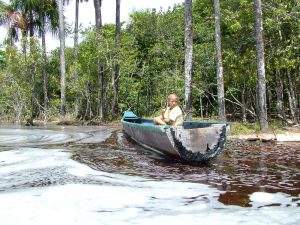The Tenure Facility is the first and only international, multi-stakeholder financial mechanism exclusively focused on securing land and forest rights for Indigenous Peoples and local communities. It provides grants to implement tenure rights under existing law and policy, sharing the knowledge, innovations and tools that emerge. Launched in 2014 by the Rights and Resources Initiative (RRI), the Tenure Facility is dedicated to scaling up recognition of collective land and forest rights globally. This helps reduce conflict and further the achievement of global human rights, environment, and development goals. The Tenure Facility is an international foundation registered in Sweden since 2017.
Around 2.5 billion people Indigenous Peoples and local communities live on and manage more than 50% of the world’s land area in customary or traditional systems. Despite existing laws that secure their rights, they have formal legal ownership of just 10%. The results of this discrepancy are increased conflict over land, higher rates of poverty and environmental degradation, and human rights abuses.
Research has clearly shown that secure tenure rights for Indigenous and local communities can contribute towards sustainable development, environmental protection and reduce tensions over land use, all at a reasonable cost. As such, there is a growing realisation at both governmental and corporate levels that tenure security is a prerequisite for achieving national and international goals for forest governance, food security, climate mitigation, economic development, and human rights. Indeed, secure tenure plays a crucial role towards improving global security, and can be a win-win, where community rights are respected, and conflicts are reduced or avoided, smoothing the way for investors and development actors to work effectively.

Already, with Tenure Facility support, Indigenous Peoples and local communities have advanced collective tenure security over more than 4.2 million hectares of land and forest and strengthened protection over 2.4 million hectares of forest categorised as reserved for Indigenous Peoples living in voluntary isolation or initial contact. Their achievements prove that with funding and technical support, indigenous and community organisations can achieve significant results in a short period of time.
Gender and land rights
Secure land rights for women result in health and education improvements, both for women themselves, and the wider population. Women within indigenous and local communities often possess distinct knowledge regarding forest resources, and their decisions regarding resource use have a significant impact on the maintenance of biodiversity, and the reduction of forest carbon emissions.
Climate and land rights
As the world faces an urgent need to reduce carbon emissions from deforestation and forest degradation, more than 26 million hectares of forest are still being cut down every year. To understand the connection between land rights and climate change, it is crucial to recognise that most of the world’s forests are managed by local and indigenous communities.
Conflict and land rights
Land disputes have fuelled violence throughout human history. As a source of survival and wealth, as well as a key building block for community and identity, land frequently takes on deep socio-economic, emotional, spiritual and symbolic meaning, making it a fiercely contested resource.